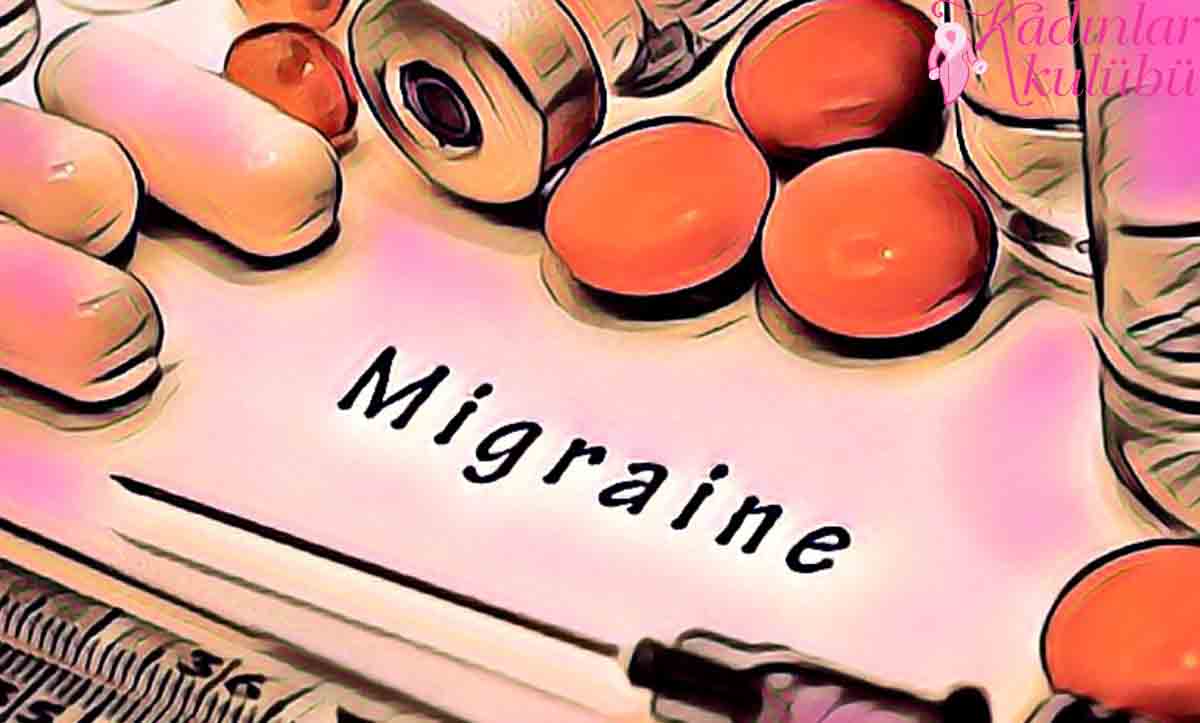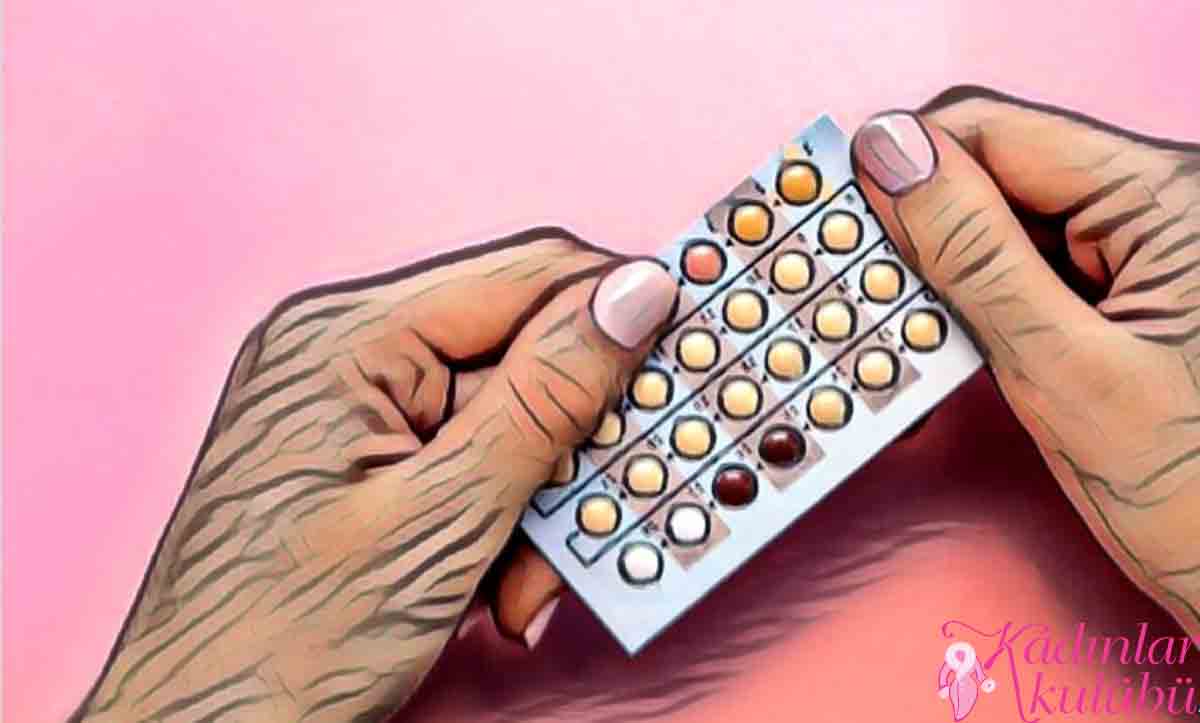What Is Good For Menstrual Migraine? Top 7 Solutions

Menstrual migraine or menstrual migraine can be felt as a dual problem. Not only do you experience unbearable pain on a monthly basis, you also live with the horror and rush of an approaching migraine attack as the days pass and your period approaches.
There are several types of migraines, and a subset of migraines is menstrual migraine, simply put, when a person has migraine attacks only during menstruation. There is also migraine related to the menstrual period, which means that although you will definitely have migraines in your monthly cycle, you will also experience migraine attacks at other times of the month. Many women who experience migraine attacks during their menstrual cycle have migraines related to menstruation. Menstrual cycles will definitely be a trigger.
What Happens to Menstrual Migraine? 7 Smoothest Solution
Menstrual and menstrual migraine can be the most difficult type of migraine to treat. It can be quite severe, lasting several days, and quite debilitating. Even if your migraine attacks are only during your period, for many women this can still mean five days a month or more. In this case, you should talk to your doctor about daily preventive treatment options for migraine.
 menstrual cycle migraine
menstrual cycle migraineIn general, she says, there are many treatment options for migraine and prevention of menstrual migraine. Here is a list of the best medications and life style changes that can help reduce the frequency and severity of menstrual and menstrual migraine attacks.
Triptans May Play a Migraine Preventative Role
According to the American Migraine Foundation, triptans are acute medications typically taken when a person feels a migraine attack coming. There are definitely types of triptans that are longer-lasting and can help prevent or make a migraine attack less severe.
 best solutions for migraine
best solutions for migraineYour shorter-acting triptans, such as Imitrex (sumatriptan) and Maxalt (rizatriptan), typically have a half-life of about four hours. The half-life of a drug is the time it takes for the concentration of that drug in the body to drop to half the initial dose. There are also triptans with a longer half-life. For example, Frova (frovatriptan) has a half-life of 26 hours and Amerge (naratriptan) has a half-life of 6 to 8 hours. These longer-acting ones can often be used as a ‘mini prophylaxis’ during your menstrual period.
If you know that your period is a major trigger for a migraine attack, you can start taking one of these long-acting triptans a few days before your menstrual day, every day or twice a day, according to a schedule. depending on the drug. This can help prevent a migraine attack from getting so bad.
The American Headache Association specifically recommends Frova “for the short-term preventative treatment of menstrual migraine.”
Attention:Please do not use without consulting your doctor.
NSAIDs Are an Option for Another Measure
Non-steroidal anti-inflammatories or NSAIDs such as Aleve (naproxen) can be used strategically for menstrual migraine as a prophylaxis in a strategy similar to triptans.
 menstrual migraine treatment
menstrual migraine treatmentAccording to Vincent T. Martin, MD, a headache specialist writing for the American Headache Association, taking 550 milligrams of Aleve twice daily from six days before to seven days after has shown to be effective in preventing menstrual migraine.
A meta-analysis published in Neurology looked at 15 studies that looked at non-classical therapies, NSAIDs, and other complementary therapies and concluded that using NSAIDs is “possibly effective” for reducing the frequency and severity of migraine attacks. However, their use to prevent menstrual migraine has not been discussed.
If you think you might want to try taking an NSAID to prevent menstrual migraine attacks, be sure to discuss this plan with your healthcare professional. including increased risk of heart attack, stroke, gastrointestinal bleeding and ulcers Potential risks of taking NSAIDs has. Definitely consult your doctor.
Oral Contraceptives May Reduce the Frequency of Menstrual Migraines
There is some evidence to suggest that some oral contraceptives can actually reduce the incidence of menstrual migraine and menstrual migraine.
 birth control pill migraine
birth control pill migraineThis does not apply to all types of oral contraception, so you should talk to your gynecologist, doctor or neurologist about which ones you want to consider. Definitely consult your doctor!
birth control methodIf you are considering taking oral contraceptives (also known as pills) or to improve your migraine symptoms, tell your doctor. from your migraine historymention it.
7 Benefits of the Birth Control Pill
Although many headache experts agree that oral contraception is believed to be safe for women with migraines for more than one, according to the American Migraine Foundation, there are situations where it can increase the risk of stroke, cardiovascular disease, or deep vein thrombosis (blood clot).
Self-Care Makes a Difference in Migraine Frequency
 Menstrual migraine treatment
Menstrual migraine treatmentIf you have menstrual migraine, it’s especially valuable to take care of yourself and try to reduce your tension during your period. Follow a regular sleep schedule, which means waking up and going to bed at approximately one-to-one hours each day. Don’t skip meals, try to eat protein at every meal, and do about 20 to 30 minutes of aerobic exercise each day. Making these habits a priority will help you reduce the frequency and severity of your migraine attacks.
Migraine Emergency Solution at Homem
Daily Magnesium Has A Preventative Effect
You should take magnesium as a natural supplement every day to help prevent menstrual migraines. Do not consult your doctor. There is evidence to support the use of magnesium, but the mechanism of action or the “why” behind how it improves migraine is not fully understood. It could be to stabilize the cells, or to reduce too much excitability or neuronal firing, but at this point it’s all theoretical.
 Is magnesium good for migraine?
Is magnesium good for migraine?A study published in Cephalalgia found that individuals who took magnesium for 12 weeks had 41.6 percent fewer migraine attacks, compared with 15.8 percent fewer attacks for the placebo cluster. Source
According to the American Migraine Foundation, daily oral magnesium supplementation has been shown to be effective in preventing menstrual migraine, especially in women with premenstrual migraine.
Attention:Remember that talking to your doctor about supplements is always a good idea.
5 reasons to take magnesium for female health
Regular Exercise Can Help Prevent Menstrual Migraines
When we consider all strategies to prevent migraine attacks, people need to choose to make life style changes that can make a real difference. There is plenty of evidence to suggest that systematic aerobic training in itself can work as a preventative medicine, and there is some research suggesting that yoga and high-intensity interval training may also be beneficial.
 menstrual migraine
menstrual migraineA study published in Cephalalgia found that people who did aerobic exercise at least three times a week had a reduction in the frequency of migraine attacks equal to those who took the drug Topamax (topiramate).
They concluded that exercise may be an option in the preventive treatment of migraine in individuals who do not benefit or do not want to take daily medications.
Regular training not only helps prevent migraine attacks for some people, but if the headache is mild at the same time, a short workout can actually relieve a headache. On the other hand, pushing yourself too hard can be a trigger for migraines, especially if you’re actually having a migraine attack.
One of the key definitions and characteristics of migraine is that ordinary activity can make you feel more dreadful. Essentially, if you’re in the middle of a severe migraine attack, moving a lot will only make things worse for you. It’s probably not the best time to go for a run or do aerobic activity.
Beta Blocker Drugs for the Prevention of Migraine Attacks
Beta blockers are the most well-known drugs for treating high blood pressure and other cardiovascular conditions. It can be used to prevent migraine attacks in general, not just specifically menstrual migraines. Consult your doctor before using these drugs.
 Beta blocker in migraine treatment
Beta blocker in migraine treatmentBeta-blockers such as propranolol are widely used as a daily reliever for migraine. There is ample evidence that they can reduce the severity and frequency of migraine.
neurotherapeutics Exactly how beta-blockers prevent migraine attacks is unknown, according to a review in the journal Cell. Basically, it can have the effect of blocking the action of the hormones epinephrine (also called adrenaline) and norepinephrine (noradrenaline), which slows the heart and relaxes blood vessels. It may also have to do with some beta-blockers shutting off sensible serotonin receptors in the brain and other parts of the body. Changes in serotonin levels in the brain have been associated with migraine attacks. But beta-blockers have many other effects on the body, and these are only two possibilities for their therapeutic effect on migraine. Source
The American Headache Society beta-blockers Lopressor (metoprolol), propranolol, and timolol “provide efficacy and should be recommended for migraine prevention,” and beta-blockers Tenormin (atenolol) and Corgard (nadolol) are likely to be effective and should be considered for migraine prevention. ” Source
- On-Site Comments















Comment